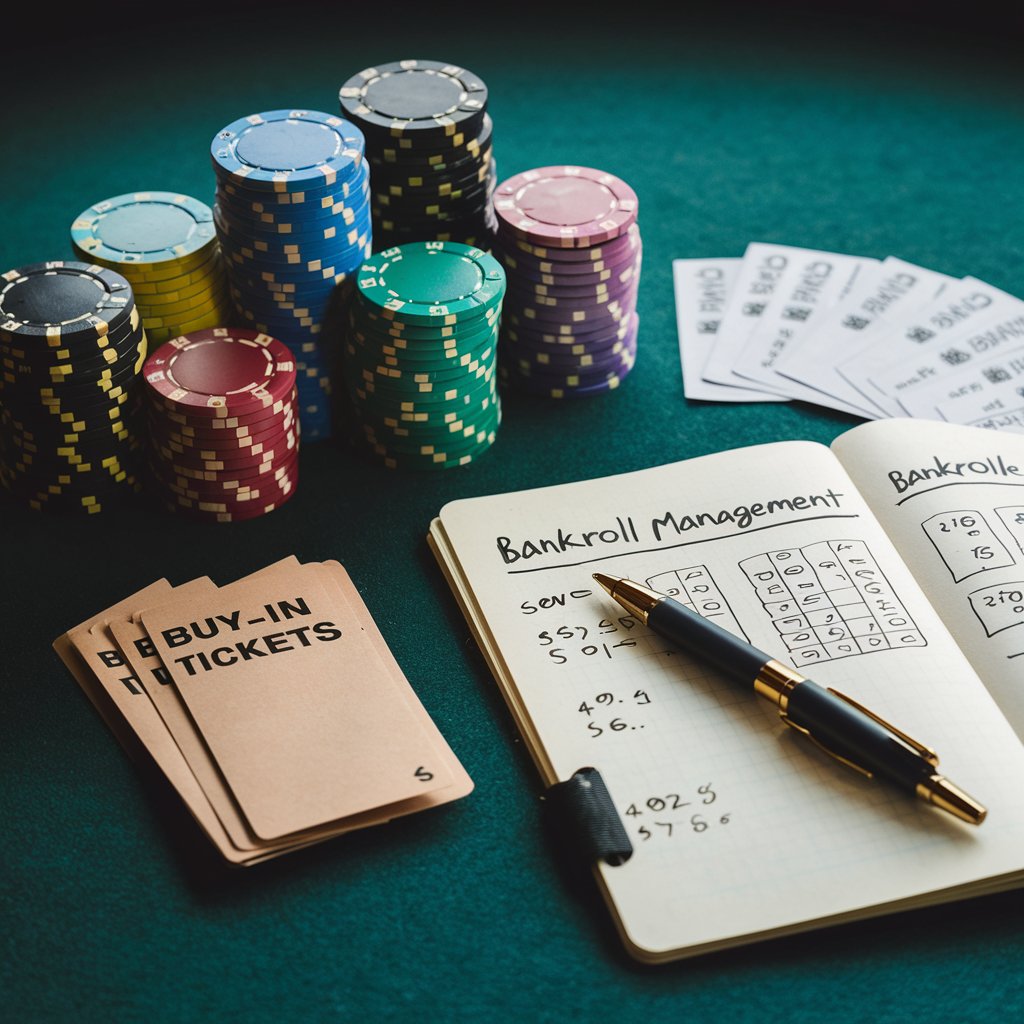Have you just recently found poker here are top 5 beginner poker tips for you. Have you recently watched a big televised game, and it got your attention? Or maybe you have joined your friends’ home game and got hooked. You want to play more, but you keep struggling and getting overwhelmed. Does any of the above sound familiar? In poker, like with every other beginning, things can be difficult. To truly master the game, it is going to take a lot of time, dedication, and hard work. However, if you are commencing your poker journey, you can immediately boost your profitability by implementing some basic concepts. Here are our top 5 tips for beginning players and a bonus pro-tip at the end.
1. Play Tighter
Right off the bat, our first tip is the most important one when it comes to poker strategy. No matter what you might think, if you are new to the game, you are playing too many hands. I promise you. It is fun to enter every pot, look at flops, and splash your chips around. If you are simply playing for fun, there is nothing wrong with that. But if you aim to become a profitable player, as tedious as it may sound, you need to fold more. If we look at a 9-handed No Limit Holdem game, you should only play about 20% of the hands. That means four out of five times, you should be folding pre-flop. There are a lot of free charts and other resources online that can help you grasp the basics of pre-flop play. Try to, at least, get familiar with elementary hand selection, and your win rate is guaranteed to go up from the very next session. A solid pre-flop hand selection guarantees you a head start over your opposition. So, next time you get dealt that Ace-Ten in the early position, just fold.
2. Be the Aggressor
Let’s preface this tip with some basic player-type information. Poker player types are split based on two criteria, the number of hands they play and their aggression. They can be tight or loose, as well as passive or aggressive. Most players at low-stakes games are a loose passive type. That means that they like to play a lot of hands and do so in a passive way. They want to look at flops, turns, and rivers at almost all costs, but they will never do much of the betting themselves. A loose passive player will do a lot of check-calling, whether chasing a draw or just having hit any pair on the board and not believing you. The best way to combat this type of player is by playing tight and aggressive. We have already learned that playing tight is important, but being aggressive is just as crucial. Always bet your strongest made hands and your strongest draws. Your opponents will have a lot of medium to weak hands and draws, and they will find a reason to call you down. By always choosing the aggressive action, you guarantee to charge them the maximum amount.

150% deposit match bonus – $2000!
Try itFirst deposit bonus of 100% up to $600
Try it1000€ deposit welcome bonus
Try it3. Manage Your Money
The next tip is a simple but major one. Managing your money, also known as bankroll, in poker is a crucial off-the-table skill many beginners lack. Don’t underestimate the variance. Even the best player loses on any given night. You need to have enough money to withstand a bad run of cards. A good rule of thumb is the following:
- Cash games: a minimum of 30 buy-ins.
- Tournaments: a minimum of 100 buy-ins.
It is as simple as it sounds. To play a $500 buy-in cash game, you should have at least $15,000 in your poker bankroll. In tournaments, due to the extreme variance that comes with most of the money sitting up top, you need an even heftier roll. So, playing $500 tournaments will require at least a $50,000 bankroll. Depending on your skill set and other factors, these numbers should potentially be even higher, but they are a decent place to start.

4. Leave Your Ego at the Door
This tip is a big one for a lot of people. Poker is a competitive game, and nobody likes to lose. However, due to the gambling factor that comes with it, everyone is destined to lose at some point. When that happens, egos get hurt, and that draws out the worst from people. Especially if you are playing live, and the worst player is getting lucky over and over again. He starts teasing you, and you throw everything you have learned out of the window. You go after him and usually end up losing even more money. This is a common scenario even amongst more experienced players, but it is the one that is easily avoidable. Poker is a skill game with a significant gambling factor. Everyone can have a lucky night, and that is the beauty of it. If it were otherwise, it wouldn’t be nearly as popular. Just think of it as a game that lasts forever. Focus yourself on making the most money over a long time. One night, a week, even a month is meaningless. If you are the best player, in the end, you will win the most money. So next time, leave your ego at the door and focus on making the best possible decisions at the table.

5. Live to Fight Another Day
This one is also known as “Don’t chase your losses.” When things are not going your way, your mind gets affected. No matter how tough you are. No matter how calm you seem on the surface, subconsciously, things are starting to go south. The best thing you could do at that moment is just quit. You will have to figure out for yourself when exactly to throw in the towel. But for most, it is somewhere after three to five buy-ins lost. It might be hard at first, but stand up, rest, recover, refocus, and come back tomorrow stronger. Minimizing your losses is as important as maximizing your winnings. Keep that in mind, and your bankroll will always stay healthy.

Pro Tip: Choose Where You Play
Here is a bonus tip for everyone serious about their game. Consider the rake, fees, bonuses, and promotions. Both online and live, some hosts value their players more than others. Always choose the one that is best for you. If you are searching for a place to play online, check out some of our offers. You can also send us a message, and we will do our best to accommodate your needs. GO BIG OR GO HOME!
